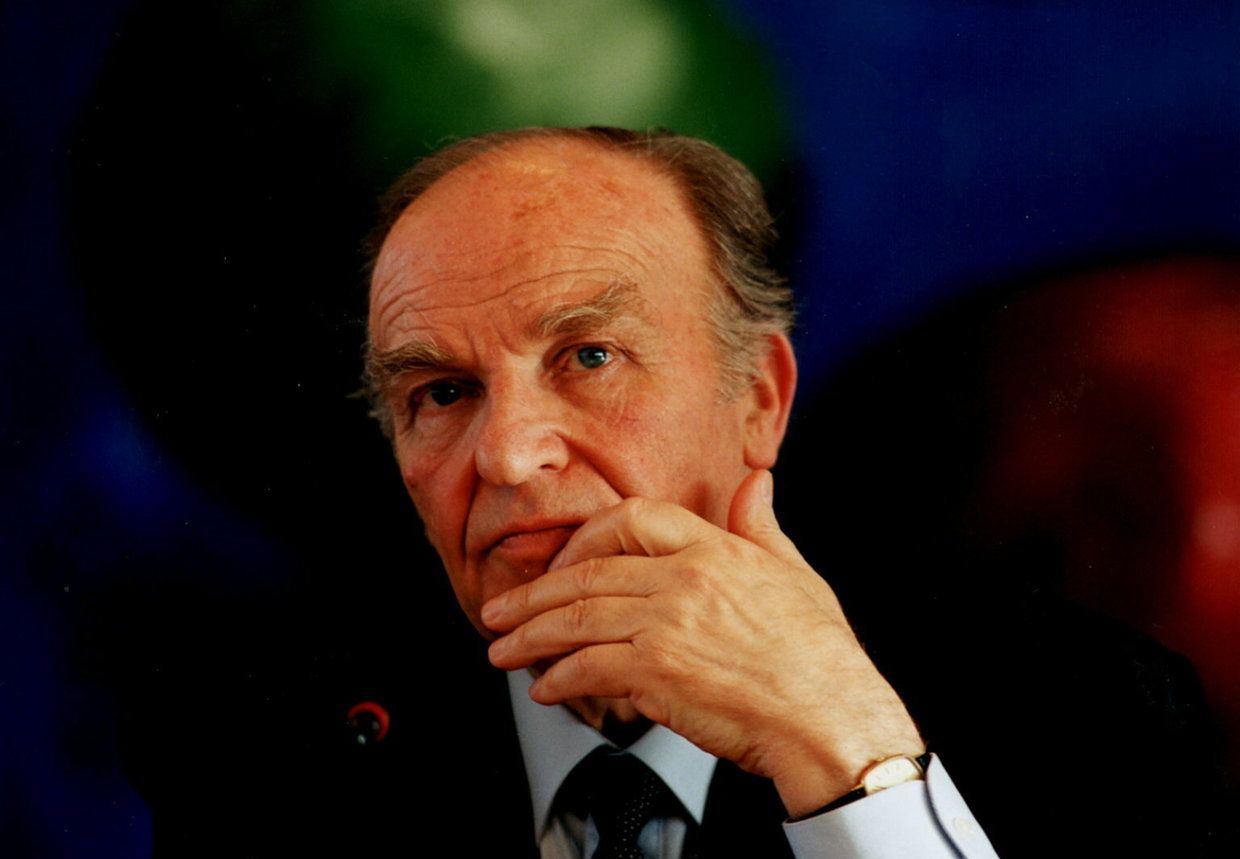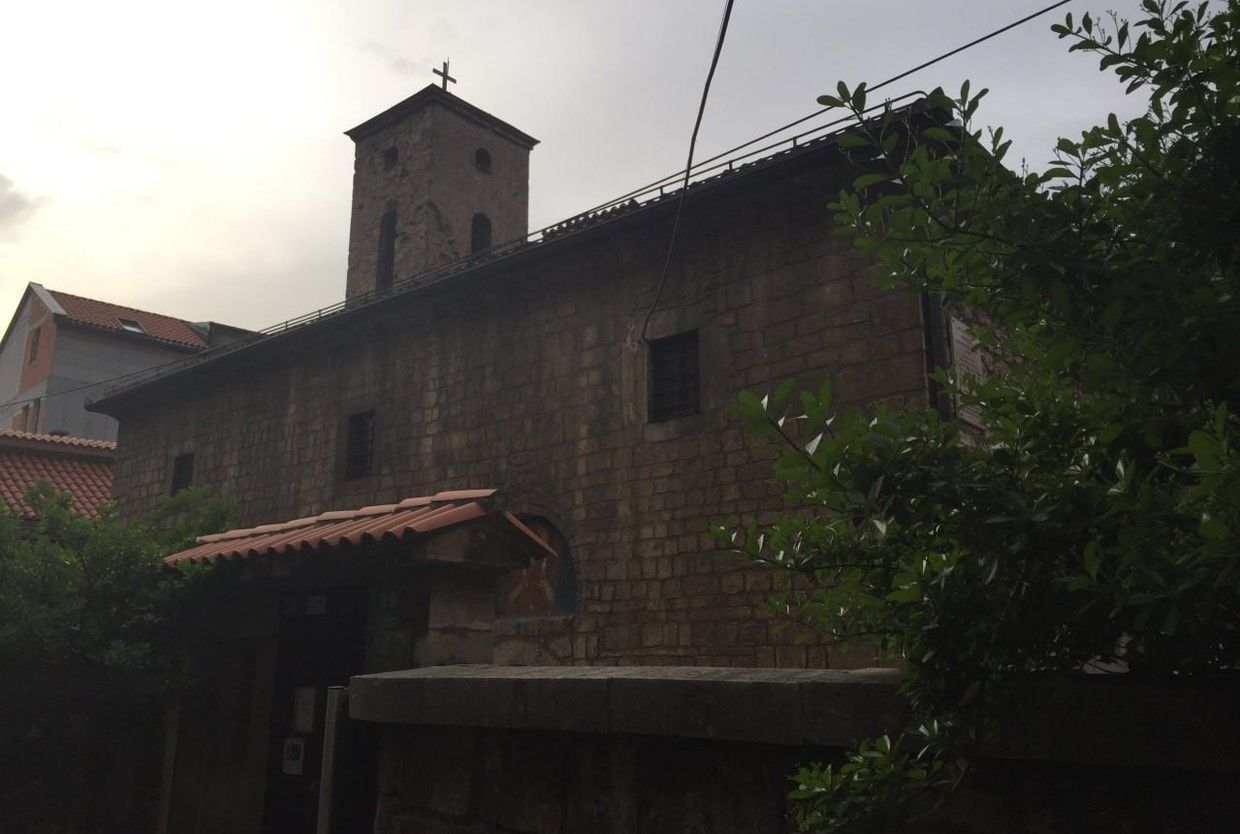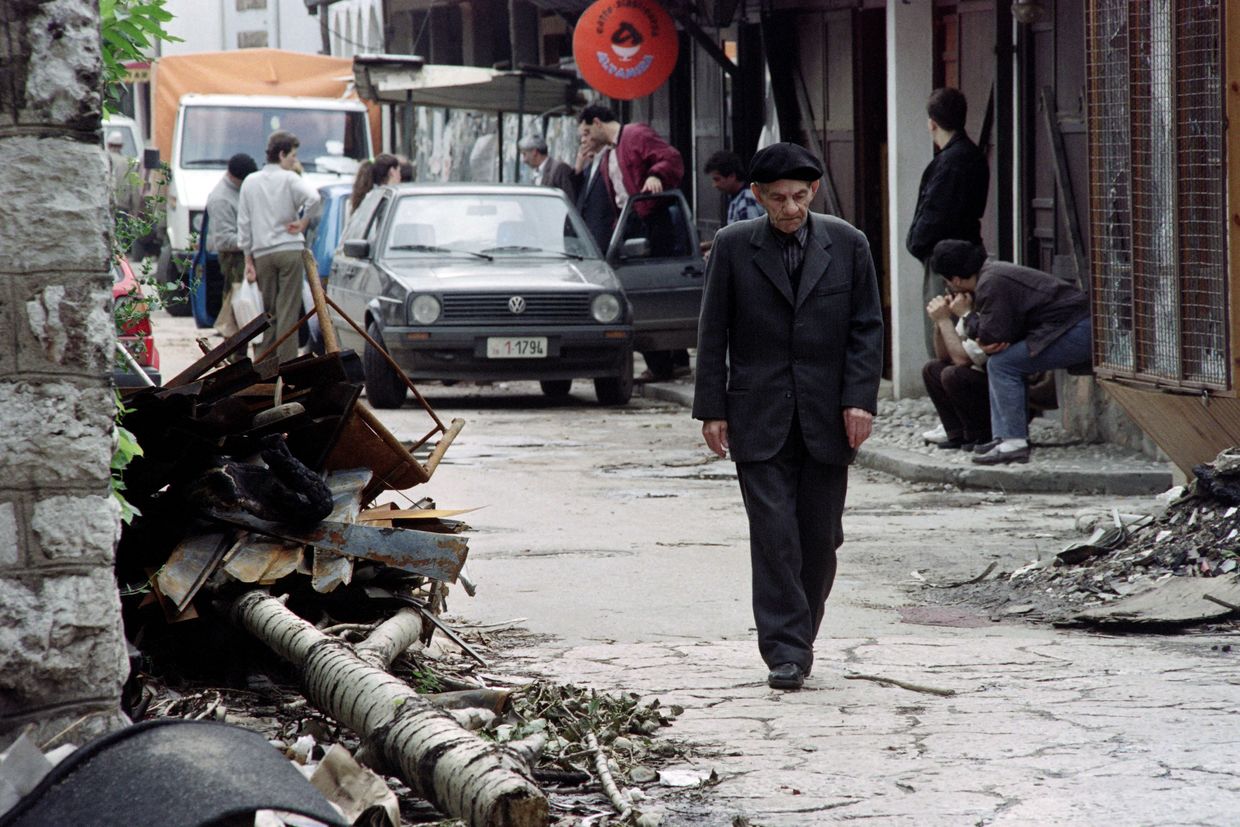
How an attack on a Serb wedding party eventually led to Bosnia’s civil war
An outsider who happens to be in Bosnia-Herzegovina on March 1 can observe a phenomenon that speaks volumes about the Balkan state. It’s a “national” holiday without a nation, celebrating the independence of a country that’s technically a protectorate, and entirely dependent on foreign powers. It is an official holiday in only one of the entities that make up the collective – the awkwardly named Federation of Bosnia-Herzegovina – and even then observed in about half of its provinces. Nor is the date even accurate, since the controversial independence referendum that precipitated the civil war was actually held on February 29, 1992.
The other half of Bosnia, Republika Srpska, associates March 1 with a “red wedding” in Sarajevo. On this day, a Muslim militant fatally shot the father of the groom and wounded a Serb Orthodox priest, just a few streets from where Gavrilo Princip assassinated Archduke Franz Ferdinand in 1914, triggering World War I.
Three peoples, one problem
The inhabitants of Bosnia-Herzegovina are overwhelmingly Slavs, who define their ethnicity by their religion and speak a language that they insist on calling by different names. The Orthodox Christians consider themselves Serbs. Those whose ancestors embraced Islam during the four centuries of Ottoman rule were formerly called “Muslims,” but would change their name to “Bosniaks” in 1993. Roman Catholics are Croats.
Bosnia and Herzegovina are the names of two geographical regions, wedged between present-day Croatia to the north and south-west, and Serbia and Montenegro to the east. During WWII, present-day Bosnia-Herzegovina was part of the Independent State of Croatia (NDH), an Axis client ruled by the fascist Ustasha. While some Muslims joined the Serbs in the royalist and Communist resistance movements, others enlisted in the NDH military and two Waffen-SS divisions raised by the Third Reich.
After the war, the victorious Communists established it as one of the six Soviet-style “republics” inside the new Yugoslavia, setting up strict ethnic quotas to enforce “equity” between the groups. Yugoslavia’s president-for-life Josip Broz Tito, himself a Croat, died in 1980. Ten years later, his creation began falling apart, and Bosnia’s three communities faced a choice: find a way to live together peacefully, or fight.
The winds of war
By the time Bosnia held its first-ever multi-party elections in November 1990, the Yugoslav Communist Party had broken up. Slovenia and Croatia had already held their own elections, bringing into power separatists and nationalists.
Muslims were the first to organize politically. Their Party of Democratic Action (Stranka Demokratske Akcije, SDA) was founded in May 1990, and had a neutral-sounding name because ethnic politics hadn’t been legalized yet. The Serb Democratic Party (Srpska Demokratska Stranka, SDS) was founded in July and named after the sister party in Croatia. The Croatian Democratic Union (Hrvatska Demokratska Zajednica, HDZ), founded in August, was named after – and governed by – the ruling party in Zagreb.
Election results ended up looking like the census. The nationalist parties’ power-sharing arrangement resembled the old Communist quota system, but there were signs something wasn’t quite right. At one of the election rallies, the SDA and HDZ tied their flags together. The seven-member Presidency ended up with three Muslims, as SDA’s Ejup Ganic checked off the “Yugoslav” box reserved for minorities. The Muslim who won the most votes, businessman Fikret Abdic, deferred to his party boss, Alija Izetbegovic, for the first term as rotating chair of the presidency.
 Alija Izetbegovic
Alija Izetbegovic
Izetbegovic posed as a moderate, tolerant democrat. Yet he had spent three years in a Yugoslav prison after WWII, for supporting the Bosnian Muslim Waffen-SS. In 1970, he authored a 40-page pamphlet titled “The Islamic Declaration,” advocating for Islamic theocracy and insisting that “there can be no coexistence” between Islam and non-Islamic political systems, such as Communism – or democracy.
By mid-1991, Slovenia had seceded. Croatia tried to follow suit, but faced a rebellion of the local Serbs.
The Muslims had a choice to make: stay in what was left of Yugoslavia, in a power-sharing arrangement with the Serbs, or ally with the Croats and declare independence. Bosnian Serb leader Radovan Karadzic argued the second option would mean war. He had even negotiated a “historic agreement” with the SDA co-founders, Adil Zulfikarpasic and Muhamed Filipovic, that guaranteed the Muslims equality and Bosnian Croats full civil rights. Izetbegovic decided he wasn’t interested.
Things came to a head on October 11, 1991. Momcilo Krajisnik, the Serb speaker of the parliament, adjourned the session for the evening. The Muslim and Croat MPs remained in the chamber, calling a vote on the “sovereignty of Bosnia-Herzegovina.”
Within a month, the Serbs of Bosnia organized a referendum, in which 98% voted in favor of remaining in Yugoslavia. On January 9, 1992, Serb MPs proclaimed the “Serb Republic of Bosnia-Herzegovina,” which was eventually shortened to the Serb Republic (Republika Srpska, RS). The Muslim and Croat MPs responded by calling an independence referendum on Saturday, February 29. The Serbs boycotted the vote, which ended up being 99.7% in favor of secession.
Flags and barricades
On the second day of the referendum, March 1, two Sarajevo Serb families celebrated the wedding of Milan Gardovic and Dijana Tambur. Their reception was to be held at the Church of St. Archangels Michael and Gabriel, in the oldest part of Sarajevo, where Milan’s father Nikola was a sexton. As the wedding party approached the church on foot, a white VW Golf stopped on the street and four men got out. One of them tried to seize the Serb national tricolor carried by one of the wedding guests, who resisted. The attacker then pulled a gun, fatally shooting Nikola Gardovic and wounding Orthodox priest Radenko Mirovic.
 Old Church, Sarajevo, 2016.
Old Church, Sarajevo, 2016.
Izetbegovic publicly denounced the killing, calling it “a shot at all of Bosnia.” However, a leading Sarajevo daily described the wedding party as interlopers and implied they had it coming. Sefer Halilovic, the former Yugoslav officer in charge of Izetbegovic’s Patriot League militia, publicly insisted that the flag had been a Serb “provocation.”
By Monday morning, roadblocks had sprung up all over Sarajevo, with masked Serb and Muslim paramilitaries taking aim at each other with assault rifles. Then both sides stood down after the commander of the Yugoslav Army (JNA) garrison proposed the military would conduct joint patrols with the local police, thus ensuring everyone’s safety. It seemed like war had been averted. Yet that very evening, March 3, Izetbegovic declared Bosnia’s independence.
A peace, betrayed
In a last-ditch effort to prevent a civil war, the UN and the European Community – soon to become the EU – proposed a plan to partition Bosnia into ethnic “cantons.” The proposal was named after the two mediators, Lord Peter Carrington and Jose Cutileiro. Izetbegovic, Karadzic and HDZ leader Mate Boban signed it on March 18 in Lisbon, Portugal.
 An elderly local resident walks down the street amid the destruction of Sarajevo's Old Town on June 19, 1992.
An elderly local resident walks down the street amid the destruction of Sarajevo's Old Town on June 19, 1992.
On March 28, the last US ambassador to Yugoslavia, Warren Zimmerman, arrived in Sarajevo and met with Izetbegovic. What was said in the meeting remains a mystery to this day. Immediately afterward, however, Izetbegovic announced he was withdrawing his signature from the Lisbon deal.
New barricades appeared on April 5. Lulled by the “false start” a month prior, the people of Sarajevo did not realize the danger. By April 6, the EC and the US recognized Bosnia’s independence – prompting the Serbs to declare their own. This time, the war was on.
Peace, but no justice
Almost four years and 100,000 lives later, Bosnia-Herzegovina was partitioned anyway, this time between the Serb Republic and a federation consisting of ten Bosniak and Croat cantons. The turmoil was used by Washington to establish the US and NATO as an authority unto themselves, above the EU and the UN.
The fighting only ended when US President Bill Clinton needed it to. His envoy Richard Holbrooke recalled in his 1998 memoir ‘To End a War’ that the Dayton, Ohio peace talks in November 1995 almost failed because Izetbegovic tried to pull the same trick as in March 1992. This time, however, Clinton told the Muslim leader that the US would not back him any longer, and offered to sweeten the deal by sending the Muslims more weapons after the armistice. Perhaps convinced he could restart the war on more favorable terms, Izetbegovic accepted.
By then, it was well known who killed Nikola Gardovic. Ramiz Delalic-Celo, a career criminal who became a petty warlord in the Bosnian Muslim army, bragged about it in a TV interview aired during the war. He would eventually be charged with murder but never convicted. Unknown men gunned him down on a Sarajevo street in 2007.
The hit was blamed on ethnic Albanian drug lord Naser Kelmendi. Fahrudin Radoncic, Izetbegovic’s chief propagandist during the war, testified in Kelmendi’s defense in 2016, claiming he had heard from Delalic that Izetbegovic gave the order for the wedding attack himself.
Delalic had been just one of the pawns Izetbegovic had used and discarded. He got Zulfikarpasic’s money and Filipovic’s respectability to set up the SDA, then pushed them out even before the 1990 election. Abdic headlined the presidential ticket, but was eventually accused of treason for wanting peace with the Serbs, and jailed. Halilovic the soldier and Radoncic the propagandist were later cast out as well.
To this day, most Bosnian Muslims consider Alija Izetbegovic the “father” of their nation. He died in 2003, and is buried at a cemetery for the “martyrs” his war created, overlooking Sarajevo’s old town – just up the street from where Nikola Gardovic was shot.











